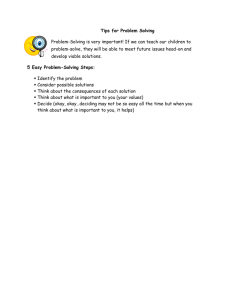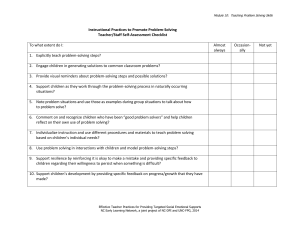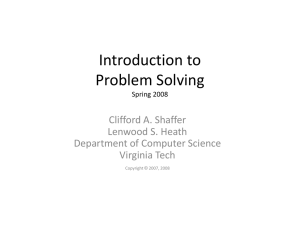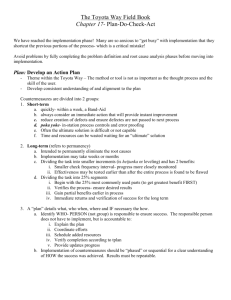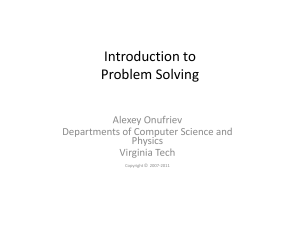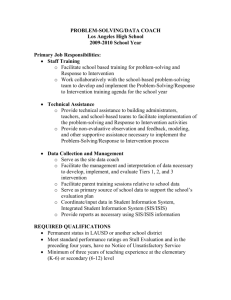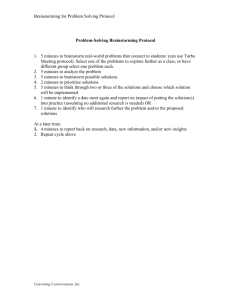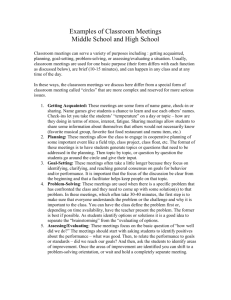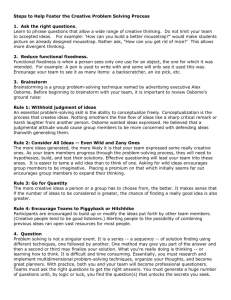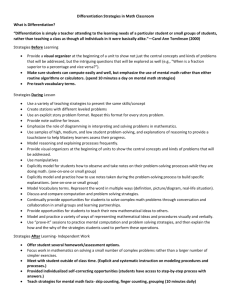Computer Parts - Tewksbury Township Schools
advertisement
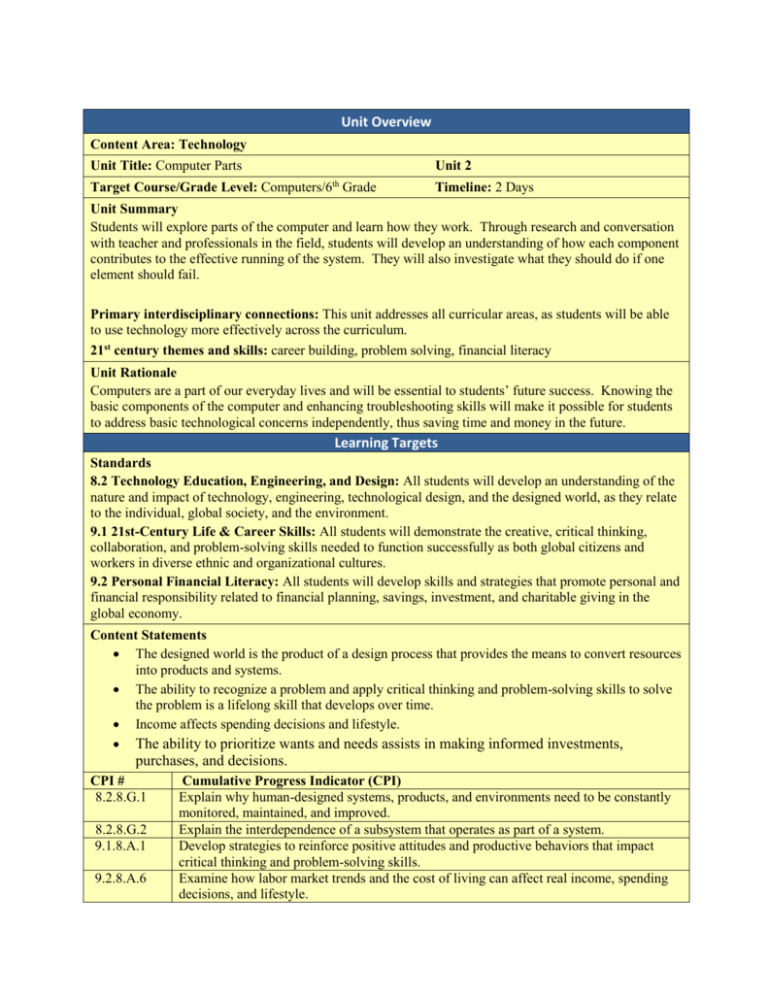
Unit Overview Content Area: Technology Unit Title: Computer Parts Unit 2 Target Course/Grade Level: Computers/6th Grade Timeline: 2 Days Unit Summary Students will explore parts of the computer and learn how they work. Through research and conversation with teacher and professionals in the field, students will develop an understanding of how each component contributes to the effective running of the system. They will also investigate what they should do if one element should fail. Primary interdisciplinary connections: This unit addresses all curricular areas, as students will be able to use technology more effectively across the curriculum. 21st century themes and skills: career building, problem solving, financial literacy Unit Rationale Computers are a part of our everyday lives and will be essential to students’ future success. Knowing the basic components of the computer and enhancing troubleshooting skills will make it possible for students to address basic technological concerns independently, thus saving time and money in the future. Learning Targets Standards 8.2 Technology Education, Engineering, and Design: All students will develop an understanding of the nature and impact of technology, engineering, technological design, and the designed world, as they relate to the individual, global society, and the environment. 9.1 21st-Century Life & Career Skills: All students will demonstrate the creative, critical thinking, collaboration, and problem-solving skills needed to function successfully as both global citizens and workers in diverse ethnic and organizational cultures. 9.2 Personal Financial Literacy: All students will develop skills and strategies that promote personal and financial responsibility related to financial planning, savings, investment, and charitable giving in the global economy. Content Statements The designed world is the product of a design process that provides the means to convert resources into products and systems. The ability to recognize a problem and apply critical thinking and problem-solving skills to solve the problem is a lifelong skill that develops over time. Income affects spending decisions and lifestyle. The ability to prioritize wants and needs assists in making informed investments, purchases, and decisions. CPI # 8.2.8.G.1 8.2.8.G.2 9.1.8.A.1 9.2.8.A.6 Cumulative Progress Indicator (CPI) Explain why human-designed systems, products, and environments need to be constantly monitored, maintained, and improved. Explain the interdependence of a subsystem that operates as part of a system. Develop strategies to reinforce positive attitudes and productive behaviors that impact critical thinking and problem-solving skills. Examine how labor market trends and the cost of living can affect real income, spending decisions, and lifestyle. 9.2.8.E.1 Prioritize personal wants and needs when making purchases. Unit Essential Questions Unit Enduring Understandings Is there value in knowing how something It’s good know your computer, its parts, and works if you have someone to fix it for how it works so you can save money, time, you? and be more productive Unit Learning Targets Students will ... identify parts of the computer and what they do troubleshoot common computer issues Evidence of Learning Summative Assessment MS Word/MS PowerPoint Mini-Report on Computer Part/Component Equipment needed: SMART Board, MS PowerPoint, computers, internet access, MS Word Teacher Instructional Resources: Getting to know your computer PP, IT Support Formative Assessments Exit ticket Checklists Observation Rubrics Integration of Technology: Parts of the computer Technology Resources: Click the links below to access additional resources used to design this unit: Opportunities for Differentiation: Choice of topic/computer part/component for presentation, Grouping strategies, Questioning Techniques, Presentation options: independent/small group Teacher Notes: This mini-unit provides a review of content covered in earlier grades. The teacher may determine through pre-assessment that this unit needs to be reduced, eliminated, or expanded based on the needs of each particular group.

